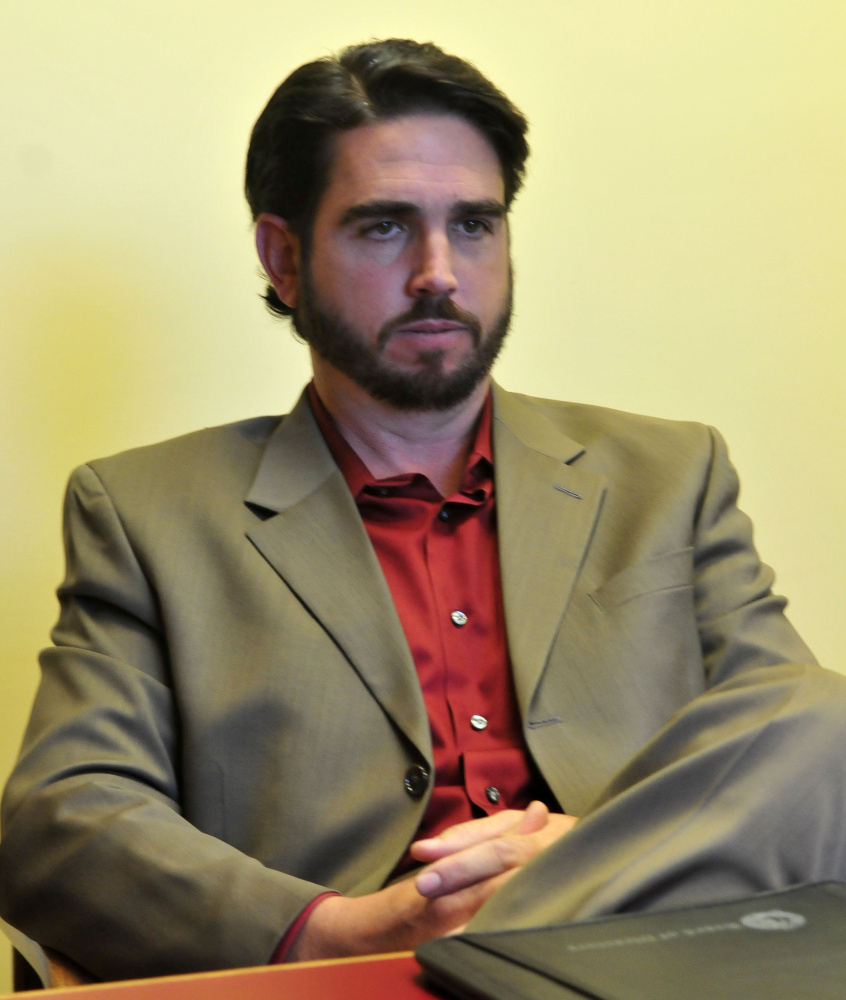Sen. Scott Cyrway is proposing legislation that would make it illegal for an educator in Maine to have sexual contact with any student, regardless of age, following criticism of state law in the wake of the allegations against Don Reiter, the former principal at Waterville Senior High School.
A constituent asked Cyrway, R-Benton, who also represents Waterville, to submit the bill after Reiter was dismissed for asking an 18-year-old female student to have sex with him, Cyrway said Wednesday.
Under Maine law, it is illegal for an educator to have sexual contact with a student who is 17 years old or younger.
Reiter also has been charged with official oppression, a misdemeanor charge, for allegedly abusing his power when he asked the student for sex.
Kennebec County District Attorney Maeghan Maloney said she supports Cyrway’s bill.
When Maloney announced the official oppression charge in November, she said that her office would have charged Reiter with attempted sexual assault if the student had been younger than 18.
It is illegal for an educator to have sexual contact with a student under the age of 18, and the general age of sexual consent in Maine is 16. Maloney questioned at the time the law’s identification of 17 as the cutoff age.
“I think it is long overdue,” she said. “The same unequal power dynamic exists in post-secondary education, whether the student is 17 or 18, and that is what the statute is there to protect — to make sure that that unequal power dynamic is not exploited and a student doesn’t feel pressured into doing something that the student is not ready for.
“I’m really pleased that Senator Cyrway has taken those steps.”
Cyrway said his bill would correct that oversight and offer protection to all students from a situation in which an educator could try to use power to take advantage.
“I just want to prevent a situation. If it happens again, at least the student would be protected,” Cyrway said.
There is no upper age limit in his proposal, he added. Some students who were kept back or start school late could be 18 or older and still in high school. Those students should have the same protections as other students, Cyrway said.
The proposed bill is not intended to affect the charges in the Reiter case, but the episode highlighted the issue, he added.
Because it’s the short session, the proposal would have to considered “of an emergency nature” to be considered by the Legislative Council on Thursday at the State House. During the short session, the council only considers bill titles, so resources aren’t wasted drafting bills that won’t be accepted.
If considered to be of an emergency nature and approved by the council, the proposal would be presented for possible adoption as a bill when the new legislative session starts in January.
If not, Cyrway would have an opportunity to appeal and explain why it’s an emergency nature, or wait until next year’s long session to reintroduce it.
This story has been corrected.
Staff writer Amy Calder contributed to this report.
Send questions/comments to the editors.




